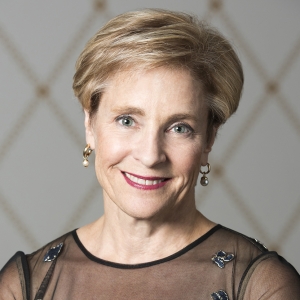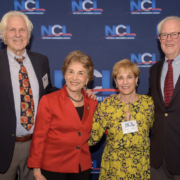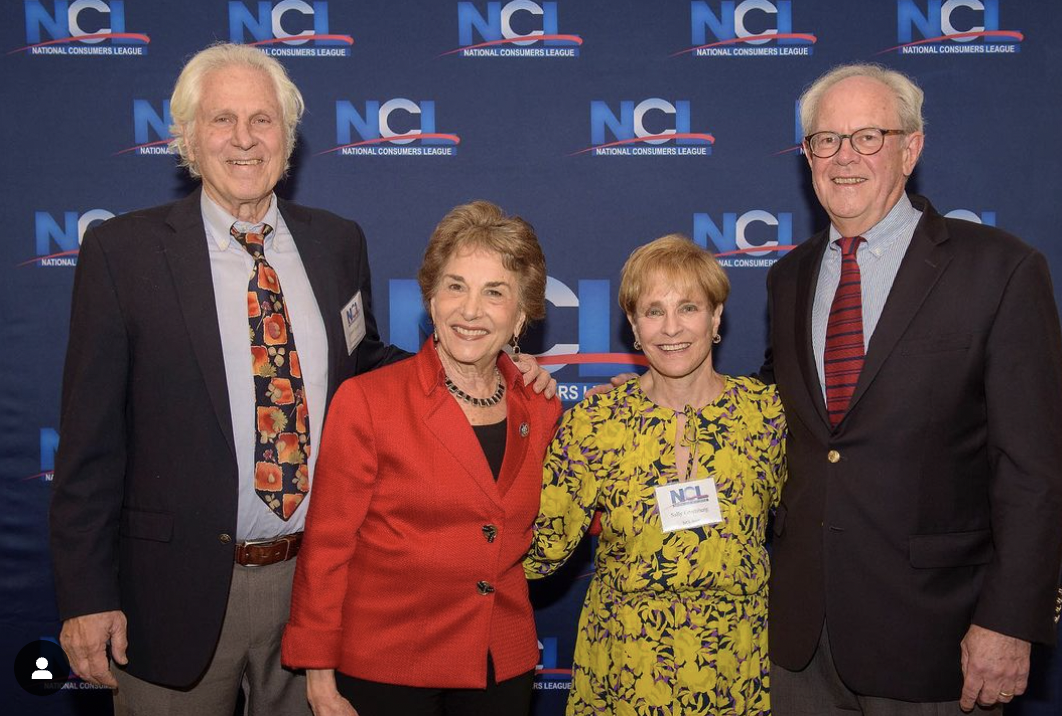Dallas High School team from Pennsylvania wins 2024 National LifeSmarts Championship
April 24, 2024
Media contact: National Consumers League – Melody Merin, melodym@nclnet.org, 202-207-2831
Washington, DC – Pennsylvania’s Dallas High School students were crowned the 2024 National LifeSmarts Champion in San Diego, California, this past Sunday, April 21. Coached by Kevin West, the Pennsylvania team consisted of Captain Marie Popielarz, Artem Smagin, Kareem Almeky, Riley Dewey, and Mahi Dohl.
Joining them in the final match was the Selah Gold FCCLA team from Selah, Washington. Members of the Washington team were Captain Hannah Christianson, Macie Ladd, Indiana Hilmes, and Hannah Rees, with Jeff and Dania Cochran serving as their coaches.
Rounding out the final four teams to join Pennsylvania and Washington in Sunday’s semifinal matches were the Crosby High School Bulldogs from Connecticut and the Country Clovers 4-H team from Delaware 4-H.
This year’s competition marked the 30th anniversary of LifeSmarts, the youth consumer education program of the National Consumers League. Forty-seven student teams—consisting of 230 students—traveled from across the country to compete over four days at the Hyatt Regency Mission Bay Spa and Marina in San Diego.
“This year’s Nationals was special because we are celebrating 30 years of the LifeSmarts program, with this year’s event being our largest competition to date,” said LifeSmarts Program Director Lisa Hertzberg. “I want to congratulate all the teams and their coaches who came to San Diego to compete, learn from each other, and have fun. Congratulations to this year’s winning team from Dallas High School in Dallas, Pennsylvania!”
LifeSmarts is an education and scholarship program run by the Washington, DC-based National Consumers League (NCL), the nation’s oldest consumer advocacy organization. It competitively tests high school student’s knowledge of consumer awareness, with subjects including personal finance, health and safety, consumer rights and responsibility, technology and workforce preparation, and the environment in online and in-person competitions using a quiz bowl-style format. LifeSmarts is available in all 50 states, the District of Columbia, and in partnership with student leadership programs such as FBLA, 4H, FCCLA, and SkillsUSA.
Each student on the first-place team received a $1,500.00 scholarship; second-place team members received $1,000.00 scholarships; and third-place team members received $750 scholarships. Team members who placed fourth received gift cards.
Teens from each of the 47 teams represented at Nationals also competed as individuals, and the top-scoring student in each LifeSmarts subject received a $500 scholarship from NCL. The 2024 winners are:
- Consumer Rights and Responsibilities: Maria Huck, West Virginia
- Environment: Artem Smagin, Pennsylvania
- Health and Safety: Martaja Powell, Alabama
- Personal Finance: Blake Sullivan, Missouri
- Technology and Workforce Preparation: Jeremiah Hawley, Wyoming
Coleman Mangham from Varsity Wild Card 1 (Tift County 4-H, Georgia) and Shelby Brewer from Massaponax High School in Virginia were awarded co-LifeSmarts Students of the Year. They each received $100 Amazon gift cards.
Winning recognition as LifeSmarts Coaches of the Year were Ginger Walters from Massaponax High School and Sahvanna Mease from Calhan High School Colorado. Both coaches received $100 Amazon gift cards.
LifeSmarts State Coordinators of the Year were awarded to Mary Hillmann of Minnesota, and Kay Johnson and Tammie McCarthy, both from Wisconsin.
The Sarah Weinberg LifeSmarts Memorial Scholarship, given each year to a student who demonstrates an extraordinary commitment to community service, was awarded to Marie Popielarz from Pennsylvania.
Many LifeSmarts teams entered the anti-counterfeiting digital poster contest, sponsored by Amazon. Winners of the digital poster contest were presented to the captains of the following schools: School Without Walls, District of Columbia; Buffalo High School FBLA, Wyoming; Calhan High School Varsity, Colorado; Sweepstake Team 3, Blake Oaks High School, Missouri; West Chicago High School, Illinois; JCHS FCCLA, Kansas; Tift County 4-H, Georgia; Sweepstakes Team 2, West Feliciana High School, Louisiana; Sweepstakes Team 4, Larimer County, Colorado; and Riverside High School / Hi-Point Career Center BPA, Ohio. Each recipient received a $100 cash prize.
Winners in the identity theft essay contest were Kyle Parker Bennett, Allie Higgins, Maria Huck, and Kristina Plank. Each received a $1,000 scholarship, courtesy of Norton.
Kenvue sponsored scholarships that were awarded to five students who excelled in educational and outreach efforts in OTC medicine safety. Winners were Alex Piscane, Florida; Chloe Doiron, Sweepstakes Team 2, West Feliciana High School Louisiana; Kyle Bakhsh, Sweepstakes Team 1, Cobb County 4-H, Georgia; Mahi Dohl, Dallas High School, Pennsylvania; and Natalie Rodriguez, Econoponax, Massaponax High School, Virginia.
The top teams in the TikTok and Instagram videos on OTC medicine safety garnered praise from the contest’s judges and were recognized with achievement certificates. The schools recognized were:
- Sweepstakes 4- Colorado, Larimer County 4-H, Colorado
- School Without Walls, Washington, DC
- Gordon County 4-H Varsity, Georgia
- Junction City High School FCCLA, Varsity WC 3, Kansas
- John Marshall High LifeSmarts for Life, West Virginia
- Minidoka C. 4-H, Teal Taters 4-H Varsity, Idaho
- Litchville-Marion High School, The Money Hounds, North Dakota
- Dallas High School, Pennsylvania
- Benton County 4-H, Norton WC 2, Arkansas
- Pryor High School Tigers, Oklahoma
- Blair Oaks High School Team Falcon, Sweepstakes Team 3, Missouri
- Tift County 4-H, Varsity WC 1, Georgia
The LifeSmarts Team Spirit Award went to Odessa High School FBLA from Missouri. The team demonstrated outstanding camaraderie and great sportsmanship throughout the four-day championship.
Awards for best t-shirt design, Instagram contest, and meme and pin design were also announced. The best meme went to Francis Marion FBLA, Alabama, and the People’s Choice t-shirt winner was JCHS FCCLA, Kansas. The t-shirt award went to West Virginia’s John Marshall High School. The Instagram contest winner was Odessa High School, Missouri. The inaugural LifeSmarts pin design contest was won by Gracie Erichsen of Junction City High School FCCLA, Kansas, and Layson Ferguson of West Feliciana High School, Louisiana.
“Students who come to Nationals are some of the most dedicated and competitive students in the country. Their knowledge of consumer topics is vast, which is commendable because that is the goal we set for the LifeSmarts program—to be well-informed consumers,” said NCL Chief Executive Officer Sally Greenberg. “The information they acquire through this program will help them become savvy and well-informed consumers.”
Sponsors of the 2024 National LifeSmarts Championship were Amazon, Kenvue, Norton, Discover, Tide, FICO, Comcast Universal, Melaleuca, AARP, Bayer, JP Morgan Chase, American Express, Washington State Employees Credit Union, and Zillow.
At Sunday’s closing ceremony, NCL announced that Chicago, Illinois will be hosting the 2025 National LifeSmarts Championship next year.
To learn more about NCL’s youth consumer education program, visit LifeSmarts.
Photos from the 2024 National LifeSmarts Championships can be found here.
###
About the National Consumers League (NCL)
The National Consumers League, founded in 1899, is America’s pioneer consumer organization. Our mission is to protect and promote social and economic justice for consumers and workers in the United States and abroad. For more information, visit nclnet.org.
















